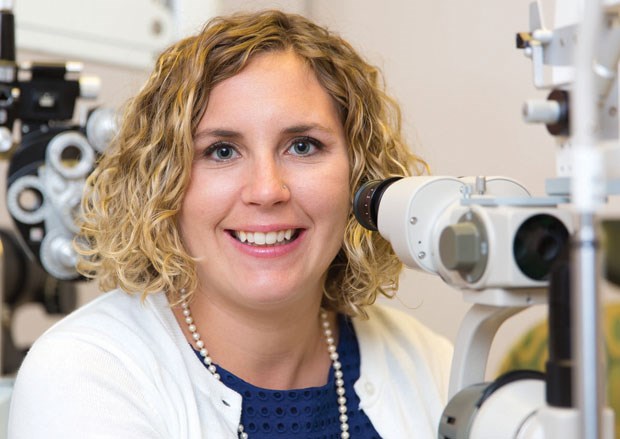A recent survey conducted on behalf of the Canadian Association of Optometrists found that B. C. parents rank child eye health as one of their lowest health priorities, with only 22 per cent choosing it as one of their top three concerns.
"It is particularly concerning because eye health is such an important part of a child's overall health and development," says Dr. Sara Kirby, a Tsawwassen optometrist.
The survey revealed that more than 17 per cent of B.C. parents are unaware that vision problems can cause speech difficulties, nearly 38 per cent are unaware they can lead to developmental delays and almost half of parents do not realize that a vision problem may be the cause of short attention spans in children.
"Eighty per cent of a child's learning is based on vision," says Dr. Kirby. "Undetected and untreated vision problems often cause reading difficulties, and can elicit some of the very same signs and symptoms that are commonly attributed to issues such as ADHD, dyslexia and speech problems."
The National Coalition for Vision Health estimates that one in four school-age children has a vision problem, yet fewer than 14 per cent of children in Canada under the age of six have had a comprehensive eye exam.
Many children participate in vision screening or sight test programs at school, which some parents misconstrue as a comprehensive eye exam.
"These tests are limited and cannot be used to diagnose a vision or eye health problem," says Dr. Kirby. "Studies have shown that vision screening tests have high error rates, with 43 per cent of children able to pass who actually have a problem."
Eye exams performed by optometrists are not only important for charting a child's eye health and ensuring they have the visual skills necessary for learning and development, they are also key to overall health maintenance.
"During an eye exam we are also looking at the structural development of the eye and identifying any underlying health conditions that may be present," says Dr. Kirby.
Retinoblastoma, the most common type of eye cancer in children, accounting for approximately three per cent of all cancers that occur in children younger than 15 years of age, may show signs as early as six to nine months old.
Optometrists also play a role in monitoring children with diabetes.
"Bottom line, regular eye exams by a doctor of optometry play an essential role in maintaining your child's overall health and ensuring they don't have a vision problem that is affecting their learning and development," says Dr. Kirby.
The B.C. Association of Optometrists recommends infants have their first eye examination between six and nine months of age, another between ages two and five, and annually thereafter to ensure optimal vision and development.



